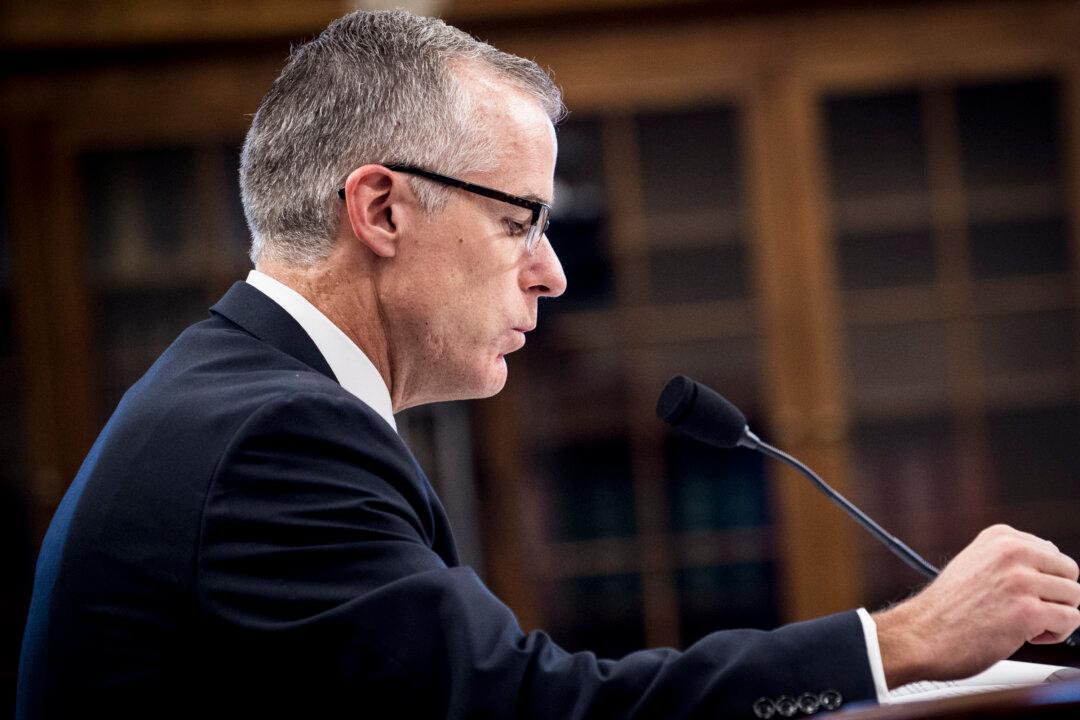Former FBI Director James Comey and his former deputy, Andrew McCabe, contradicted each other in their accounts to Congress about why they wanted to question Michael Flynn, then-national security adviser to President Donald Trump, in January 2017.
Their stories also diverged on whether the investigation was about to be closed at the end of December 2016.





